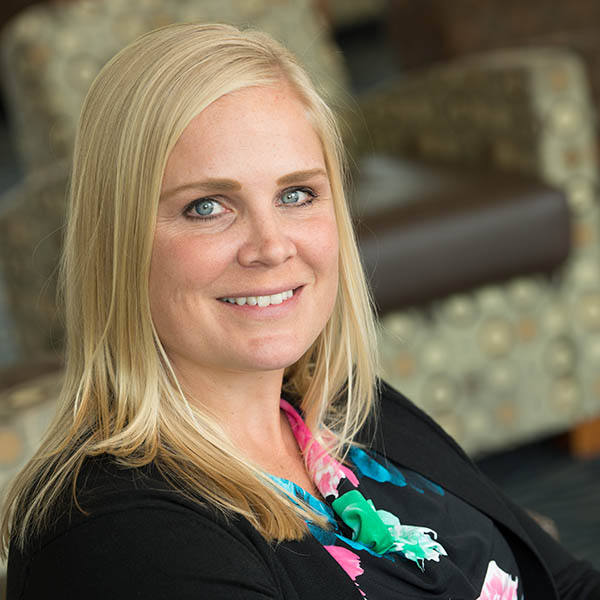
Looking to diversify? You’ll likely do best in countries like your own.
Don’t put all your eggs in one basket. Even the most novice investor knows that truism about asset diversification and international investment, but research from CSU’s College of Business finds that understanding those proverbial baskets becomes increasingly difficult when those baskets get farther away.
Although diversifying investments remains a fundamentally sound strategy, the Department of Finance and Real Estate’s Hilla Skiba finds that investors struggle with information gaps when investing in stocks from companies in cultures that are different from their own. The more dissimilar a culture is from an investor’s home, a measure known as cultural distance, the more pronounced the effect. For example, an American will likely pick better stocks when investing in German markets, a country with a similarly Western culture, than when they invest Chinese companies.
“You probably are not going to do very well trying to pick individual stocks in China,” Skiba said. “You might be better off in a passive index fund. Trying to just match market performance in the countries where you don’t have this information advantage will be more sensible than trying to actively manage your positions. When you do have that information, trying to beat the market might make sense.”

“The Performance of Active Investment Positions in Foreign Markets”
Mark Fedenia1, Hilla Skiba, Tatyana Sokolyk2
Journal of International Business Studies
1 Wisconsin School of Business
2 Brock University
Skiba and her coauthors also measured the impact that other distances – geographic, industry and business climate – play on cross-national investment, and determined that only cultural distance negatively influenced investment performance. Their research, “The Performance of Active Investment Positions in Foreign Markets,” has been accepted by the prestigious Journal of International Business Studies.
Developing an index of cross-national distances for international stocks
Before Skiba and her collaborators could parse how distances influenced returns on international stocks, they had to develop an objective measurement for them by using indexes published by organizations such as the World Bank, Heritage Foundation and the Centre d’Etudes Prospectives et d’Informations Internationles, in addition to previously published social sciences literature. To determine cultural distance, Skiba indexed 23 data items that referenced everything from the dominant religion, education levels and language to the value that cultures place on individualism, masculinity and uncertainty avoidance.
The index is the bedrock of Skiba’s paper, and she’s already applying it to another dataset for future research. She hopes the system can be used to help future researchers create further understanding of cross-national investments.
“This kind of an index which I’ve pieced together from other publicly available sources – I’m not using proprietary data, – I can put it out there and I can share,” Skiba said. “It can be a tool that other researchers can use.”
Skiba was one of the first researchers to link cultural factors to international finance in 2010 when she wrote her doctoral thesis on the influence that geography and culture played in portfolio decisions. Over the following years, she followed up her dissertation with several other articles on the topic. After turning her attention away from cultural distance, she later returned to it for a broader, more expansive investigation.
“It’s a milestone,” Skiba said. “Let’s take what I know from my doctoral student days and put it all together in this one big study. I have been thinking about it probably since graduate school.”
A boost for active investment strategies?
With time, Skiba’s scope has increased dramatically, and draws on a huge dataset of about 50 different sources. Using a commercial database, Skiba and her coauthors examined about 40,000 different investment portfolios from 37 countries, looking at quarterly holdings between 1999 and 2015. They also culled information from MSCI’s tools, several country indices and other sources.
By comparing returns between active investment strategies, a tactic in which an investor buys and sells stocks and funds on an ongoing basis in order to outperform the market, Skiba found that international Investment firms historically have moved cash into countries that are culturally close to their home countries when marketplace conditions in those countries favor it. The researchers speculate that investors surpass market performance in these instances because they have an informational advantage that comes from proximity to those markets.
With the rise of passive investments such as index funds and ETFs in recent years, active portfolio management has come under scrutiny by many in the finance world, with critics referencing its performance issues and high fees. By identifying instances when portfolio managers shift investments to culturally close countries, it provides insight that active investments may outperform passive investments in certain situations.
“What we’re showing is that there is some information advantage and market outperformance that certain managers are able to beat the market,” she said.
The College of Business at Colorado State University is focused on using business to create a better world.
As an AACSB-accredited business school, the College is among the top five percent of business colleges worldwide, providing programs and career support services to more than 2,500 undergraduate and 1,300 graduate students. Faculty help students across our top-ranked on-campus and online programs develop the knowledge, skills and values to navigate a rapidly evolving business world and address global challenges with sustainable business solutions. Our students are known for their creativity, work ethic and resilience—resulting in an undergraduate job offer and placement rate of over 90% within 90 days of graduation.
The College’s highly ranked programs include its Online MBA, which has been recognized as the No. 1 program in Colorado for five years running by U.S. News and World Report and achieved No. 16 for employability worldwide from QS Quacquarelli Symonds. The College’s Impact MBA is also ranked by Corporate Knights as a Top 20 “Better World MBA” worldwide.